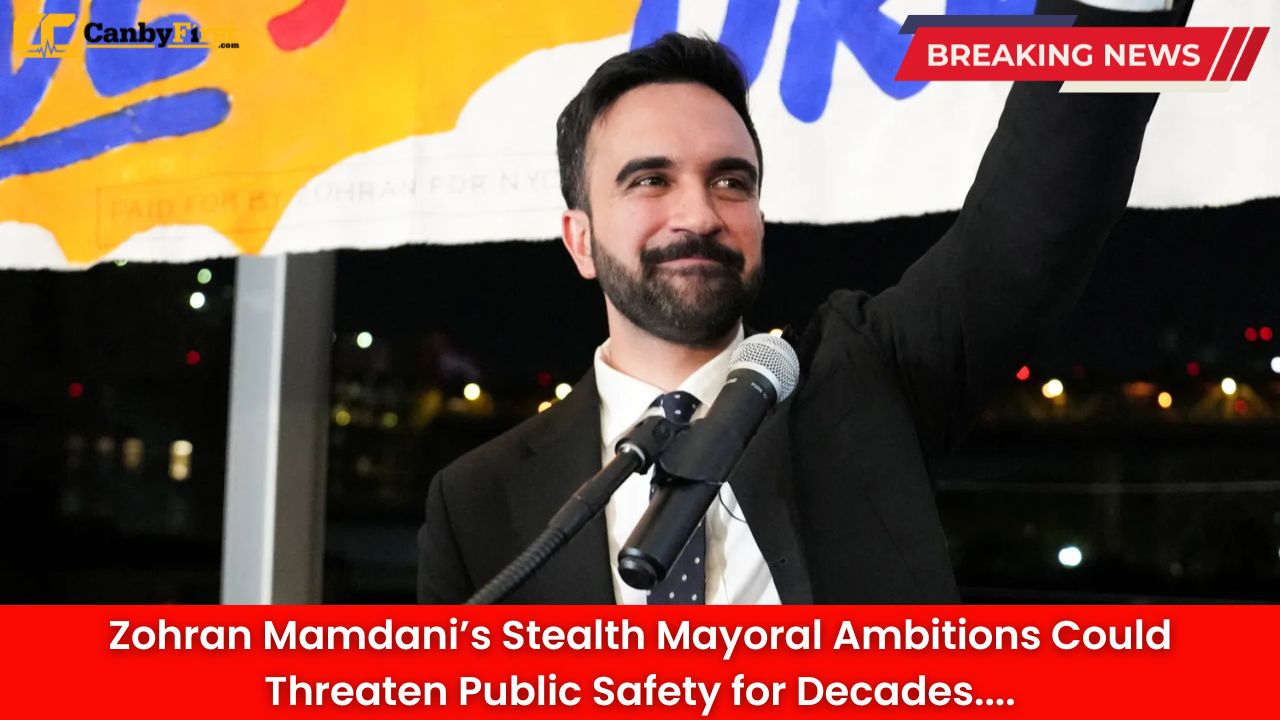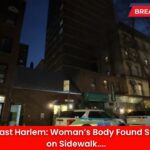New York, US:
Concerns are mounting across New York City as Assemblyman Zohran Mamdani’s growing influence in city governance fuels debates over the extent of his policy ambitions. Once viewed as a grassroots progressive activist, Mamdani is now being accused by critics of pursuing a stealth campaign to consolidate political control — potentially reshaping the city’s public safety framework for generations.
Insiders within city government suggest that Mamdani’s recent maneuvers to expand mayoral-like oversight through legislative channels could destabilize law enforcement authority and weaken neighborhood security structures. Supporters see his plans as an innovative approach to social reform, but opponents warn they could erode the city’s ability to respond effectively to crime and emergency challenges.
Also Read
The Quiet Power Shift
What critics call Mamdani’s “stealth mayoral power” refers to his strategic placement of allies throughout public service agencies, particularly within departments that intersect with policing, justice, and housing. Through these appointments and legislative pushes, Mamdani’s bloc is said to be influencing the operational decisions of agencies traditionally overseen by the mayor’s office.
This informal network could, according to some political observers, serve as the foundation for long-term control over key policy levers related to public safety, budgeting, and city planning. While technically within the bounds of New York’s governance model, such overlapping influence could undermine formal checks and balances designed to prevent one faction from dominating city operations.
Public Safety on the Line
Law enforcement representatives and civic leaders have voiced apprehension that Mamdani’s reforms may tilt the balance between reform and security too far toward ideology. His push to redirect police funding into housing and social programs mirrors national “defund” movements, but detractors argue it risks leaving communities vulnerable in the face of rising urban crime.
Retired NYPD officials warn that these structural and funding changes could “freeze out” the city’s ability to respond swiftly to threats — both criminal and emergency-based. “We’ve seen ambitious politicians before, but this level of interconnected influence could tie New York’s hands for decades,” commented one former police commander.
Others in the emergency management field share similar concerns, noting that the dilution of centralized authority in public safety can lead to delayed responses during crises and inconsistent enforcement of laws.
Ideological Divide Deepens
To his supporters, Mamdani represents a new era of moral governance — a leader who prioritizes social justice and community empowerment over bureaucratic inertia. They argue that the city’s existing power structures have historically favored wealthier boroughs while neglecting underserved neighborhoods. Supporters also highlight his advocacy for tenant rights, expanded affordable housing, and universal public transit access.
Yet critics insist that his methods — particularly his use of legislative backchannels and broad influence over administrative appointments — verge on authoritarian tactics under a progressive guise. Political analysts warn that if unchecked, this approach could create a deeply entrenched system of ideological governance, one that outlasts electoral cycles and limits accountability.
The Long-Term Political Implications
Should Mamdani’s strategies succeed, New York could witness a redefined relationship between the City Council, mayor’s office, and state legislature. In effect, it could mark the emergence of a hybrid political system where decision-making authority is diffused among a loyal network of policymakers aligned under Mamdani’s reformist umbrella.
Some fear that this configuration might generate policy stagnation — or worse, unilateral direction — on critical security issues. Public safety officials caution that future mayors, regardless of political alignment, could face unnecessary friction or legal hurdles while attempting to reverse entrenched mandates tied to Mamdani’s framework.
This subtle restructuring could leave lasting imprints on city governance, from police funding formulas to emergency response coordination and criminal justice oversight. The ripple effects, experts warn, may not become fully visible for another decade.
Community Perceptions
Among residents, opinions are sharply divided. In Queens, where Mamdani enjoys strong grassroots backing, several community organizers view his ascent as a victory for working-class representation. “He’s the first one to challenge elitist politics and put justice front and center,” one supporter said during a local housing rally.
However, in other boroughs — especially where crime rates have seen sporadic increases — residents express unease. Many fear political experiments could come at the cost of basic security. “We want fairness, but not instability,” a Brooklyn shop owner remarked. “If things go wrong, it’s our neighborhoods that pay the price.”
Possible Path Forward
As the 2025 election cycle unfolds, Mamdani’s growing political reach will likely become a central discussion point. City leaders and watchdog groups are calling for clearer delineations of legislative authority, transparency in appointments, and stronger citywide input into any future reforms tied to public safety.
Whether his influence ultimately strengthens or undermines New York depends on how checks and balances evolve in response. For now, the Assemblyman remains a polarising yet unignorable figure — one whose quiet consolidation of power could redefine the city’s governance and safety landscape for decades to come.
FAQ
Who is Zohran Mamdani?
Zohran Mamdani is a New York State Assemblyman representing parts of Queens, known for his progressive activism and advocacy on social justice, housing, and workers’ rights.
What is meant by “stealth mayoral power”?
It refers to Mamdani’s alleged strategy of expanding his political influence over city functions often reserved for the mayor, through indirect control of appointments and policy networks.
Why do critics fear this influence?
Opponents believe that centralizing power in a single political faction could weaken public safety responsiveness, blur governance boundaries, and foster long-term instability.
Does Mamdani hold an official mayoral role?
No. He is a state legislator, but his influence over city agencies and reform movements has sparked debate about the reach of his political machinery.
How might this affect New York City’s future?
If Mamdani’s influence remains unchecked, it could reshape administrative power, budget priorities, and the city’s public safety landscape for decades.












